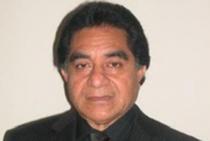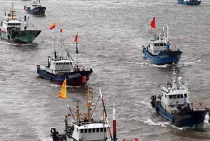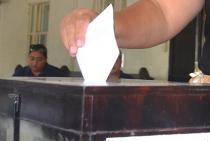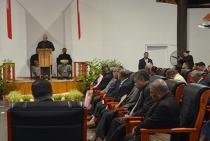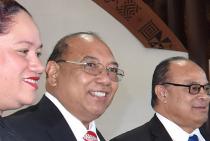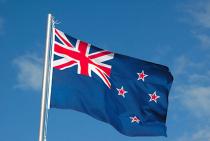Although there is much more to be learned about the January 6, 2021, riot at the US Capitol, the motives of the participants can be gleaned from their own statements. Like far-right movements everywhere today, the insurrectionists were driven by resentment of others’ emancipation. Social transformation has been sufficient to generate the rage and resentment over phantom possessions that characterize far-right movements everywhere. An act of destruction can be used to prove that something is one’s own. For example, this psychological dynamic becomes horrendously clear when men decide to kill or disfigure the women they claim to love rather than tolerate their emancipation. By Jan-Werner Mueller.
You are here
Results for Opinion
Friday 7 January 2022
Princeton, USA
Thursday 6 January 2022
Melbourne, Australia
There has been considerable opposition to vaccine mandates – opposition that I have argued is misguided. When both a vaccinated and an unvaccinated patient with COVID-19 need the last available bed in a hospital’s intensive care unit, the vaccinated patient should get it. Those who view vaccination as a “personal choice” need to bear personal responsibility for choosing to place others’ lives at risk. Exceptions should be made for those few patients for whom vaccination is contra-indicated on medical grounds, but not for those who claim to have religious grounds for exemption. No major religion rejects vaccination, and if some people choose to interpret their religious beliefs as requiring them to avoid vaccination, then they, and not others, should bear the consequences. By Peter Singer
Wednesday 8 December 2021
Nuku'alofa, Tonga
Ko e hoha’a ‘a e motu’a ni he ko e mui’aki eni ke tau talanoa ki ha Palemia mo ‘e ne fili ha’ane Kapineti. Ko e kaveinga ‘oku totonu ke ‘uluaki mahino ko e kakano ‘o e fatongia ko e Palemia. Pe ko hono fakalea ‘e toe mahino angee, koeha koa ‘a e ngaue ‘a e Palemia. Pea tau toki ‘alu ki hono kumi ‘o e tokotaha ‘oku tau pehee ‘e fe’unga mo e ngaue koia. Ko e nofo ‘a e tokanga ‘i he pehee ko e palemia ko e taki ia ‘o e pule’anga ‘oku ‘ikai ko ha ‘uhinga ia ke fili ‘aki ha taha ki he lakanga koia. - 'Inoke Fotu Hu'akau.
Tuesday 30 November 2021
Edinburgh, Scotland
The damage caused by COVID-19 – exacerbated by the continued appearance of new variants, most recently Omicron – has been catastrophic. More than five million lives worldwide have already been lost to COVID-19, and with confirmed cases on track to swell from 260 million today to 460 million by next autumn, the World Health Organization estimates that five million more people may die from the disease in the coming months. While 95% of adults in low-income countries remain unprotected, by the end of 2021, 100 million vaccine doses in the G20 stockpile will pass their expiration date and be wasted. This is perhaps the greatest public policy failure of our times. So, when the World Health Assembly (WHA) gathers for a special session starting on November 29, its task is nothing less than preventing the recurrence of such a tragedy. By Gordon Brown.
Sunday 28 November 2021
Auckland, New Zealand
For years, WTO members have failed to forge an agreement to limit fishing subsidies, thereby allowing the continuation of ecologically devastating fishing operations that would otherwise be economically unviable. Now an agreement is within reach – if the political will is there to deliver it. The comprehensive draft now on the table combines measures to curb harmful subsidies with specific exceptions for developing countries. Governments have given their word that they will curb destructive fisheries subsidies. This week’s 12th Ministerial Conference in Geneva (30 Nov.-3 Dec.) will test the credibility of that pledge. By Helen Clark, et al.
Thursday 28 October 2021
Nuku'alofa, Tonga
Ko e mataamama ‘o e Fakafofonga Fale Alea tokolahi, ko e sio faasi’i (pe siokita nai) ki he lakanga ‘o hange ha ngaue ke ma’u ai ha mo’ui mo e mafai he fo’i ta’u e 4 mo ha toe fo’i ta’u e 4 fo’ou pea hokohoko pehe ai ha toe ta’u ‘e 4 kehe . . . . - 'Amelia Kinahoi-Siamomua.
Monday 25 October 2021
Nuku'alofa, Tonga
Fakatapu ki he Hau ó Tonga mo e Fale ó Haámoheofo. Houéiki ó e fonua, Fale Alea mo e Puleánga kae úmaá á e Tonga kotoa. Fakamolemole kae fakaaú atu á e kií fietokoni koéni naá áonga ki he kakai pea mo e kau fakafofonga Falealea temou fili mai í Novema 2021 ki hono langa hotau fonua. - Samiuela T. Tukuafu.
Friday 22 October 2021
Sydney, Australia
The Pacific has demanded that world leaders at the upcoming COP26 Climate Summit in Glasgow must draw a line under new coal, oil and gas projects and immediately end fossil fuel subsidies if the Pacific islands are to remain above the sea with their cultures preserved. The Pacific Islands Climate Action Network, which is made up of civil society groups from across the Pacific, including Greenpeace, has outlined its demands for a successful COP26 climate summit and near the top of the list is an immediate end to fossil fuel projects and subsidies.
Saturday 9 October 2021
Nuku'alofa, Tonga
While candidates are campaigning for the November General Election, it is worth considering that to date, only three of the 22 legislations that were passed by the House during its 2021 session, have been enacted and assented by the King. Those three legislations included the appropriation acts, which are essential to keep government services running. The rest of the legislation, it has been pointed out, requires further work. By Pesi Fonua.
Sunday 26 September 2021
Nuku'alofa, Tonga
Koeha ‘a e founga ke fakamahu’inga’i mo tolonga ‘a e mahu’inga ho’o fili (Fale Alea)? Ko e me’a pe ‘e tolu ‘e fiema’u keke ‘ilo kiai: Ako, Ngaue mo e Tukufakaholo Hisitolia ‘o e Famili. – ‘Inoke Fotu Hu’akau.
Sunday 26 September 2021
Nuku'alofa, Tonga
The call for Tongans to be sensible and to select parliamentary representatives who will use their money wisely, is a message that we have heard repeatedly since the first election under our new system of government that was introduced in 2010. Campaigning is underway for the upcoming General Election on November 18, 2021, which will be the fourth General Election under our so-called “More Democratic System of Government”. But most interestingly, after 11 years, we find ourselves still living in Disneyland, with politicians promoting many different interpretations of the system of government and encouraging everyone to go along for the ride. By Pesi Fonua
Tuesday 21 September 2021
Sydney, Australia
A new declaration by Pacific leaders on maritime zone
preservation helps, but must also allow for cultural dialogue. With only 35 out of 48 overlapping boundaries mutually delineated between countries in the Pacific Island region, the Declaration’s call for urgent and collective action to secure maritime zones of Forum member states will require significant diplomatic, legal and cultural dialogue. The latter point could present the greatest challenge if indigenous knowledge is not afforded the same level of recognition by both bilateral partners in a boundary negotiation. -By Anna Naupa.
Sunday 29 August 2021
Nuku'alofa, Tonga
Fakatapu ki he Hau ‘o Tonga mo e fale ‘o Ha’amoheofo, hou’eiki ‘o e fonua, Pule’anga mo e Fale Alea ka e ‘uma’aa ‘a e Tonga kotoa. Fakamolemole ka e fakaa’u atu ha fakatalanoa hei’ilo na’a ‘aonga ki he halafononga ‘oku foua ‘e Tonga ki he kaha’u. -‘Inoke Fotu Hu’akau.
Saturday 28 August 2021
New York, USA
The magnitude of the United States’ failure in Afghanistan is breathtaking. It is not a failure of Democrats or Republicans, but an abiding failure of American political culture, reflected in US policymakers’ lack of interest in understanding different societies. And it is all too typical. Almost every modern US military intervention in the developing world has come to rot. It’s hard to think of an exception since the Korean War. By Jeffrey D. Sachs
Thursday 5 August 2021
Melbourne, Australia
Laws requiring people to be vaccinated if they are going to be in places where they could infect other people are restricting one kind of freedom in order to protect the freedom of others to go about their business safely. Car crash survivors who were injured because they were not wearing seat belts recognize and regret their irrationality – but only when it is too late. We are now seeing a very similar situation with vaccination ...too many people make decisions that they later regret. They cry. And they say they didn't know. By Peter Singer.
Tuesday 13 July 2021
Rome, Italy
Humanity is drifting into increasing danger. Climate change is accelerating; biodiversity is plummeting; hunger and extreme poverty are rising; and the gap between rich and poor is widening. These trends threaten not only human health and livelihoods, but also global peace and stability. Reversing them will require a shared effort to rebuild, and even upgrade, the systems on which we all depend – beginning with the global food system. By Gilbert F. Houngbo
Wednesday 30 June 2021
Austin-Texas, USA
Outside the rich-country bubble, the virus can spread, mutate, sicken, and kill. One obvious solution is to get the hoarded stockpile of vaccines into arms all around the world - but there have been only "paltry half-measures and insufficient gestures". For now, where this is heading is obvious. The US and Europe are offering crumbs, protecting their billionaires, their pharmaceutical lobbies, and their politicians’ campaign contributions. Meanwhile, China and Russia have other ideas – and the capacity to realize them. So, before too long, when the back of this pandemic is finally broken, the world will have fresh evidence about who is reliable and who is not. - By James K. Galbraith.
Sunday 13 June 2021
1 comment
Nuku'alofa, Tonga
The Lavulavus’ court cases do not enhance the government’s reputation and the way the political elite in the Kingdom operate. Sad to say Prime Minister, that in your attempt to make light of the Lavulavus’ guilty verdict, you cunningly brought to the attention of the public and the world, that other schools were involved in these criminal activities. It is now your duty as the PM of Tonga to get a full investigation going. You owe it to all foreign aid donors, to explain what Tonga has done with the funds; and you owe it to every school that you have now accused, by giving them a chance to clear their names and set the record straight. - Senolita Swan
Thursday 27 May 2021
Cambridge, United Kingdom
For over a century, the size and role of the state has been a hotly debated issue, and is so once again in the wake of COVID-19. With the world reeling from the pandemic and struggling to address complex systemic issues such as climate change, it is vital that we return to the fundamental question of politics: how a government should be. If we don’t ask it – and ask it often – we risk ending up with a government we would never choose. By Jaideep Prabhu
Thursday 20 May 2021
NTU, Singapore
With the US-China strategic competition intensifying, New Zealand navigates these tricky geopolitical waters and pursues its ‘independent’ foreign policy even at the risk of offending its Five Eyes partners. ...It also takes into account critical views of its intelligence operations, especially among its close partners in the Pacific. New Zealand with its main signals facility on the South Island, is responsible for gathering information in the South Pacific. By Anne-Marie Schleich (RSIS).




